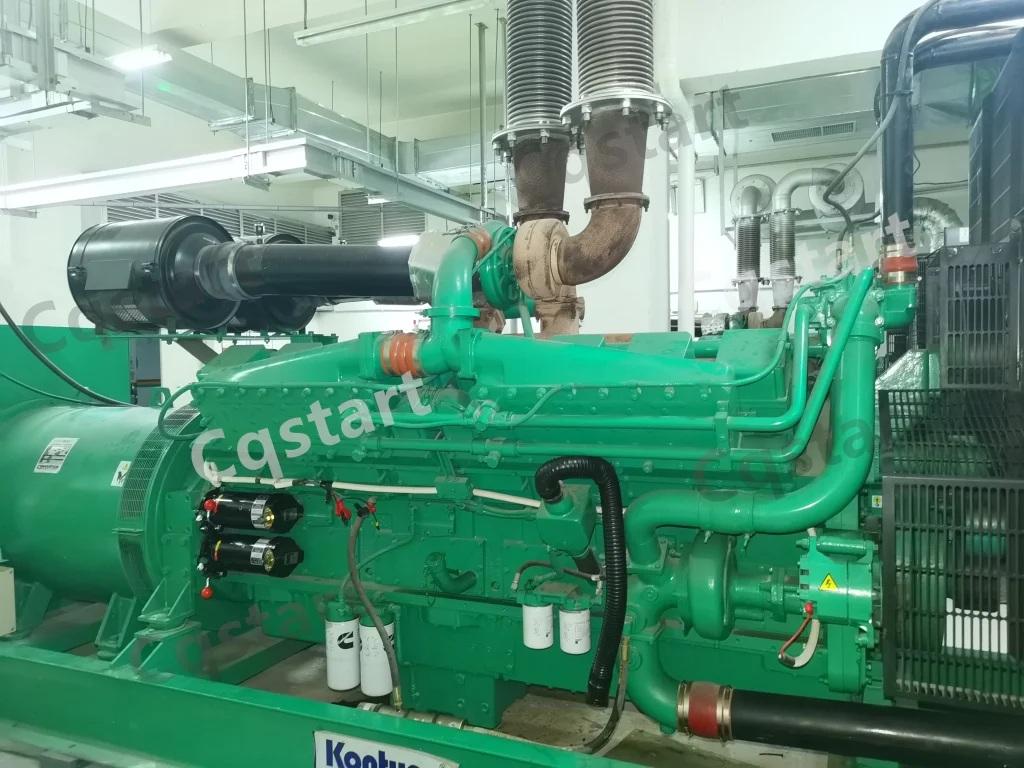Diesel engines are widely used in construction machinery, generators, and heavy-duty vehicles, but sudden failure to start often disrupts operations. Below are the 6 most common causes and step-by-step solutions, with a recommended tool to avoid recurring issues.
1. Insufficient Battery Power
Cause: Long-term inactivity, aging batteries, or faulty charging systems lead to low voltage, failing to drive the starter motor.
Solution: Use a multimeter to check battery voltage (normal: 12V for light-duty, 24V for heavy-duty). If low, recharge with a professional charger; replace aging batteries (over 3 years old). For outdoor emergency, use a jump starter temporarily.
2. Fuel System Blockage or Air Intake
Cause: Contaminated diesel (dirt, water) clogs filters, or air enters the fuel line (from loose joints), preventing fuel delivery.
Solution: Replace fuel filters and drain water from the fuel tank. To bleed air: loosen the fuel injection pump’s bleed screw, pump the hand primer until fuel flows without bubbles, then tighten the screw.
3. Glow Plug Failure (for Cold Weather)
Cause: Glow plugs (heating fuel for cold starts) burn out or have wiring issues, making starts difficult in temperatures below 5°C.
Solution: Check glow plug continuity with a multimeter. Replace faulty plugs and inspect wiring for loose connections. Preheat the engine twice (30 seconds each) before starting in cold weather.
4. Starter Motor Malfunction
Cause: Wear of starter brushes, damaged armature, or stuck solenoid leads to no response or weak rotation when turning the key.
Solution: Disassemble the starter to clean brushes and commutator; replace worn parts. If the solenoid is stuck, tap it lightly with a hammer (temporary fix); long-term, replace the solenoid.
5. Incorrect Fuel Injection Timing
Cause: Loose injection pump gears or worn timing belts shift injection timing, leading to incomplete fuel combustion.
Solution: Consult the engine manual to recheck timing marks. Adjust the injection pump position or replace the timing belt; this requires professional tools, so seek a mechanic if unsure.
6. Low Compression in Cylinders
Cause: Worn piston rings, damaged valves, or blown head gaskets reduce cylinder compression, failing to ignite fuel.
Solution: Use a compression tester to check pressure (normal: 250-400 psi). Replace worn piston rings/valves or repair the head gasket; this is a major repair, so professional help is recommended.
Recommended Tool: Cqstart Spring Starter
To avoid starter-related issues (e.g., battery failure, motor malfunctions), install a Cqstart spring starter. It uses mechanical spring energy (no electricity needed) to start the engine, suitable for harsh environments (low temperatures, remote areas). It’s easy to install, durable (service life over 10,000 starts), and eliminates reliance on batteries or electrical systems—ideal for backup or primary starting in diesel engines.

